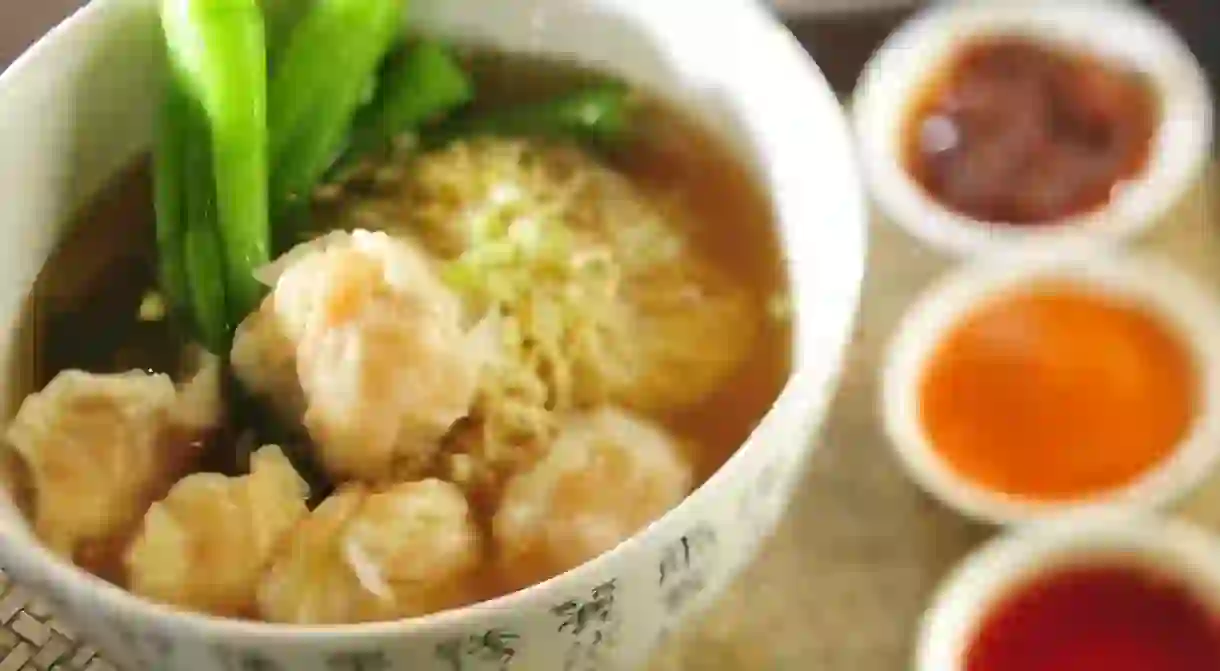7 Noodle Dishes You Must Try in China

Chinese noodles are the perfect microcosm of Chinese food: diverse, delicious, and chock full of flavor. From short noodles to long noodles, soups to stir-fry, here are seven of China’s best noodle dishes.
Lanzhou lamian
Sometimes called “beef noodle,” lanzhou lamian is a halal noodle soup that tastes even more delicious after you have watched the chef whipping the dough around to create the noodles. As the name suggests, the hand-pulled noodles originate in Lanzhou, a western Chinese city that lies on the old Silk Road route, giving it a vibrant Muslim-influenced culinary scene. Though typically found in a soup, the noodles can also be eaten plain but always come with a wide range of toppings. Today, lanzhou lamian are so popular that restaurant proprietors have to compete for turf on which to sell them.

Shanghai fried noodles
If lamian are the authentic version of lo mein, Shanghai fried noodles are the authentic version of chow mein. Typically prepared with thin wheat noodles, the dish gains its iconic taste from the sweetened soy sauce typical of the city’s cuisine. Shanghainese people also love their onions, meaning that the fried noodles should come served with a healthy portion of long green chives. Some chefs prefer to make the dish with an udon-type noodle instead, but the best flavors come out when the noodle is so thin that it becomes almost crunchy when fried.

Dan dan mian
Many people think they have tried dan dan mian, but nearly all versions of the dish found abroad are imposters. The only true way to eat the dish is in its home province of Sichuan, where street chefs aren’t afraid to pile on the heat. In fact, if you can make it through an entire bowl of the noodles without blowing your nose, it’s not authentic enough. Don’t worry though, the frequently added chopped-up peanuts should help cut down on the spice just a little bit.

Liangpi
Another noodle dish from China’s west is liangpi, a street food staple originating in Xi’an. Liangpi is made with cold, flat rice noodles and a handful of toppings, typically julienned cucumber, cilantro, vinegar, chili oil, and MSG. The ingredients are tossed together in a bowl and sold to hungry pedestrians for as little as seven yuan (US$1). The dish is more snack than meal, because the cloying mix of salty, sweet, sour, spicy, crunchy, and chewy will make anyone hungry for more.

Birthday noodles
In Chinese, birthday noodles are called changshou mian, which roughly translates to “long life noodles.” This dish is typically composed of long, golden-yellow noodles made from wheat, eggs, and soda water, which are deep fried to give them a spongy texture. In theory, though, birthday noodles can be made from any type of noodle, as long as they are long. The idea is that a person who slurps a long noodle gets an extra long life; chomp the noodles and cut them short, however, and you risk shortening your life as well. It is customary to eat birthday noodles on, you guessed it, your birthday.

Guilin rice noodles
Though the southern Chinese city of Guilin is much more famous for its mountains and rivers than its cuisine, Guilin Rice Noodles, or guilin mifen, are good enough to earn the city a place on China’s culinary map. What makes the rice noodle dish so delicious is both the thinly sliced beef as well as the chopped-up, pickled beans. The noodles themselves don’t have much of a flavor, but the beans add a delightful acidity that is cut well with spices from ginger to cinnamon to dried tangerine peel.

Ding ding mian
Ding ding mian, found originally in China’s westernmost province of Xinjiang, is the perfect foil to birthday noodles. These chopped up noodles are unapologetically short and typically paired with lamb pieces, fresh peppers, onions, and tomatoes. Thanks to Xinjiang’s location and Turkic history, the dish tastes more Middle Eastern than Chinese, proving (as every dish can) that Chinese food is about as diverse a cuisine as they come.














